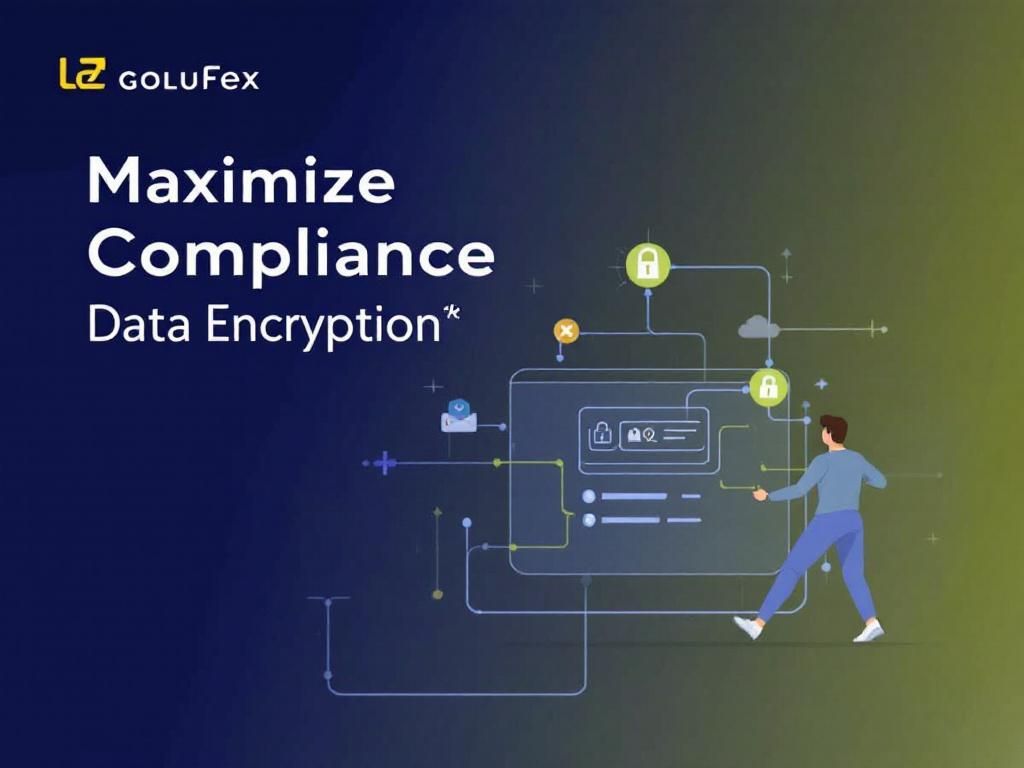In the ever-evolving landscape of digital security, the concept of data encryption has emerged as a pivotal safeguard for businesses aiming to protect sensitive information. With rising cybersecurity threats and strict compliance regulations, understanding the importance and implementation of data encryption is not just beneficial but essential for maintaining the integrity and trust of a business.
Table of Contents
The Importance of Data Encryption
Data encryption transforms sensitive data into an unreadable format, ensuring that only authorized parties can access it. This transformation is crucial for several reasons:
- Protection Against Cyber Threats: As cyberattacks become increasingly sophisticated, encryption serves as a primary defense mechanism.
- Regulatory Compliance: Many industries are governed by strict compliance standards that require data encryption.
- Maintaining Customer Trust: Customers expect their data to be handled securely; encryption helps assure them of this commitment.
Types of Data Encryption
There are two primary types of data encryption that businesses implement:
1. Symmetric Encryption
In this method, the same key is used for both encryption and decryption.
Advantages:
- Faster processing speeds.
- More efficient for large data sets.
Disadvantages:
- Key distribution challenges.
- Higher risk if the key is compromised.
2. Asymmetric Encryption
This method uses a pair of keys: a public key for encryption and a private key for decryption.
Advantages:
- Improved security with two keys.
- No need to share private keys.
Disadvantages:
- Slower than symmetric encryption.
- More computational resources required.
Key Compliance Regulations Mandating Data Encryption
Various regulatory frameworks necessitate data encryption to protect sensitive information. Here are some of the most significant:
| Regulation | Description | Encryption Requirement |
|---|---|---|
| GDPR | General Data Protection Regulation in Europe. | Requires encryption of personal data to enhance security. |
| HIPAA | Health Insurance Portability and Accountability Act in the USA. | Mandates encryption of electronic protected health information (ePHI). |
| PCI DSS | Payment Card Industry Data Security Standard. | Requires encryption of cardholder data both in transit and at rest. |
Implementing Data Encryption Strategies
For businesses looking to implement data encryption effectively, consider the following strategies:
1. Assess Data Sensitivity
Identify which data needs encryption based on sensitivity and compliance requirements.
2. Choose the Right Encryption Method
Select between symmetric and asymmetric encryption depending on your specific needs.
3. Implement Strong Key Management
Ensure secure generation, distribution, and storage of encryption keys.
4. Regularly Update and Audit
Continuously monitor and audit your encryption practices to adapt to new threats.
Challenges in Data Encryption
While data encryption is essential, businesses may face several challenges during its implementation:
- Performance Impact: Encryption can slow down system performance if not managed properly.
- Cost of Implementation: Initial setup costs may be high, especially for comprehensive solutions.
- Complexity: Ensuring that all employees understand encryption protocols can be challenging.
The Future of Data Encryption
As technology advances, so will encryption methods. Future trends may include:
1. Quantum Encryption
Utilizing quantum mechanics to create unbreakable encryption methods.
2. Artificial Intelligence in Encryption
AI could enhance encryption management and threat detection capabilities.
3. Increased Regulatory Pressure
More sectors will likely face stringent regulations requiring robust encryption.
Conclusion
Data encryption is no longer an optional security measure but a vital component for any business that values its information and customer trust. By understanding and implementing effective encryption strategies, organizations can navigate the complexities of compliance while bolstering their defenses against cyber threats. In a digital world, secure your business by prioritizing data encryption today.
FAQ
What is data encryption and why is it important for business compliance?
Data encryption is the process of converting information into a code to prevent unauthorized access. It is crucial for business compliance as it helps protect sensitive data, meets regulatory requirements, and enhances customer trust.
How does data encryption help in safeguarding customer information?
Data encryption secures customer information by encoding it, making it unreadable to unauthorized users. This ensures that even if data is intercepted, it remains protected and confidential.
What regulations require businesses to implement data encryption?
Several regulations, including GDPR, HIPAA, and PCI DSS, require businesses to implement data encryption to protect sensitive data and ensure compliance with data protection standards.
Can data encryption prevent data breaches?
While data encryption significantly reduces the risk of data breaches by protecting sensitive information, it is not a standalone solution. It should be part of a comprehensive security strategy.
What types of data should businesses encrypt?
Businesses should encrypt any sensitive data, including personal identification information (PII), financial records, health information, and any data subject to regulatory compliance.
How can businesses implement data encryption effectively?
Businesses can implement data encryption effectively by using strong encryption algorithms, ensuring proper key management, training employees on data security, and regularly reviewing compliance requirements.




